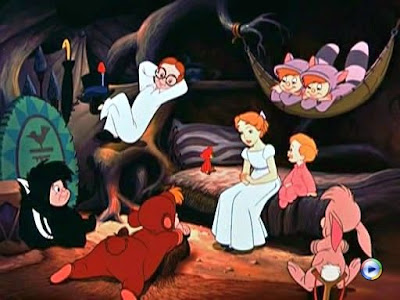Hi All,
Firstly apologies in the delay getting this post up, it has been a busy month and dyslexia does not lend its self to quick writing abilities! This last month has been an exciting one, I was able to present my work at my school's annual conference, where I won second place for my poster presentation 🙌 I have also been awarded a spot to showcase my work on an intentional level, as part of the PhD symposium section of this years WebSci18 conference hosted by VU Amsterdam. The event will be attended by researchers from across the world, from a wide range of disciplines in the digital sphere. A highlight of the event is a talk from inventor of the World Wide Web Tim Burners-Lee 😍
Aside from my academic work I have been very busy with number one job of being a mum! My self and my son have had a fantastic month attending baby raves, music festivals, play parks and museums.
A baby rave I hear you cry!??
 |
| http://kidrated.com/things-to-do/things-to-do-with-active-kids/ |
Yes, dear reader in 2018 parents are no longer content simply watching their children play in the local church hall, as they enjoy awkward small talk with the other new parents , in this day and age it is all about day time clubbing, live DJs, strobe lighting and busting some moves on the dance floor with your kids! My 2 year old son had an absolute blast as did I, this is also the case when we play together on the slide at our local park or when we both take part in arts and craft sessions at our local library. It is fair to say as a mother I have often been accused of not acting my age!
However, as I look around my peers on Instagram, Facebook and Snapchat I see I am not alone in this. From the old school friend who is now a "Disney Influencer" using platforms such as Instergram and Youtube to showcase her dream life working at the Disney resorts to her 2000 followers to the university friend and father who dresses up as a superhero with his baby daughter to attend Comic Con events across the country.
There seems to be an innate playfulness to those of us born since the mid 1980's- 1990's. I find this playfulness very interesting and in stark contrast to the turmoil the majority of us have had to face over the course of our adult life from war to economic crashes and political upheaval, us millennial's would of been forgiven for being a rather reserved group. We seem however to have combated these increasing daily stresses by allowing ourselves an eternal childhood. Yes we have debt, no chance of escaping the rent trap and daily reminders of the world's biggest issues but we also have bouncy castle club nights and sequined blankets shaped like mermaid tails.
Of course there is still a level of privilege attached to these purchases and events, they may not cost the same as a house but their availability and accessibility will be in part dictated by socio-economic status, back ground, culture ect... This is not only due to financial reasons but also the affordability to "play around", it is a privilege to have spare time or spare change, as well as the freedom to express creativity or even to show a level of vulnerability!
In my reading for my PhD, this topic of play can be found in a number of pieces of work focused on the digital divide and digital education. Scholars such as Eynon
& Geniets 2015, Luckman,
S, 2008, Harvey 2011 suggest in their research that play may be the answer, that learning through play results in higher attainment of skills and more likely to result in successful use of digital technologies. Of course play in education is no new topic it is something that has been debated since the days of Aristotle and Plato in ancient Greece! It is something however, that is still stigmatised when it comes to education, for many education and play appear to be polar opposites!
If we look beyond the classroom however, to these trends in playfulness appearing in the wider world and digital sphere are we doing a disservice to our younger generations if we do not begin to recognise play as a tool for learning both formal and informal? I think so!
So the next time you want to spent your Saturday completing an inflatable assault course or singing a long to your favourite Disney song... do it, embrace your silly! because in the digital age play is powerful!
Charlotte x
Ref:
Eynon, R. and Geniets, A. (2015). The digital
skills paradox: how do digitally excluded youth develop skills to use the
internet?. Learning, Media and Technology, 41(3), pp.463-479.
Harvey, A. (2011). ARCHITECTURES OF PARTICIPATION IN DIGITAL PLAY.
Information, Communication & Society, 14(3), pp.303-319.
Luckman, S. (2008). Turning Play into Pay: Digital
Literacies and New Lessons for the Post-Web 2.0 Generation. Media International
Australia, 128(1), pp.112-120.

Comments
Post a Comment